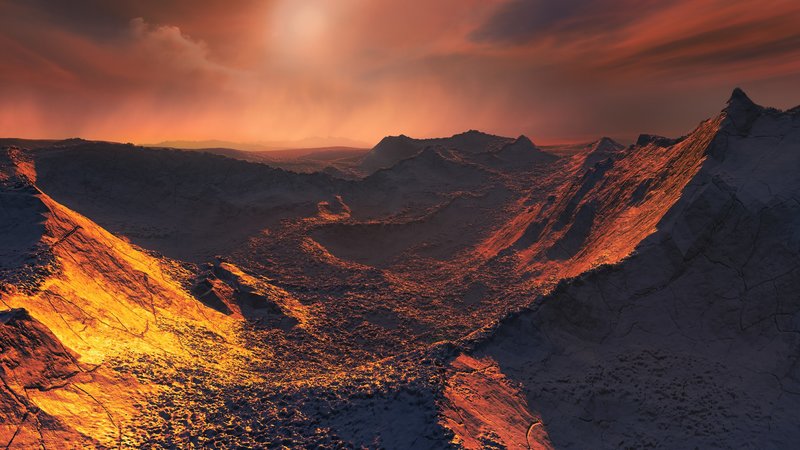
Recently discovered planet may harbor primitive alien life
Barnard b, also known as GJ 699 b, is a recently discovered Super-Earth planet orbiting Barnard’s Star. Astrophysicists Edward Guinan and Scott Engle of Villanova University have determined that Barnard b could be harboring alien life.
The icy planet, which is just six light years away from the Earth, would have the potential for life in pockets of liquid water that may exist beneath the ice if there is a hot iron and nickel core and enhanced geothermal activity.
“Geothermal heating could support ‘life zones’ under its surface, akin to subsurface lakes found in Antarctica,” said Guinan. “We note that the surface temperature on Jupiter’s icy moon Europa is similar to Barnard b but, because of tidal heating, Europa probably has liquid oceans under its icy surface.”
The discovery of Barnard’s Star b was described in November of 2018 in the journal Nature. With a mass that is just over three times that of the Earth, Barnard’s Star b orbits a red dwarf star that is older than the sun every 233 days.
An international team of scientists led by Ignasi Ribas of the Institute of Space Studies of Catalonia (IEEC) set out to investigate the potential for primitive life on the planet. The study was based on 18 years of observations combined with newly acquired data.
“The most significant aspect of the discovery of Barnard’s star b is that the two nearest star systems to the Sun are now known to host planets,” said Engle. “This supports previous studies based on Kepler Mission data, inferring that planets can be very common throughout the galaxy, even numbering in the tens of billions.”
“Also, Barnard’s Star is about twice as old as the Sun – about 9 billion years old compared to 4.6 billion years for the Sun. The universe has been producing Earth-size planets far longer than we, or even the Sun itself, have existed.”
The study findings were announced at a press conference held at the 233rd meeting of the American Astronomy Society (AAS) in Seattle on January 10.
—
By Chrissy Sexton, Earth.com Staff Writer
Image Credit: ESO/M. Kornmesser












